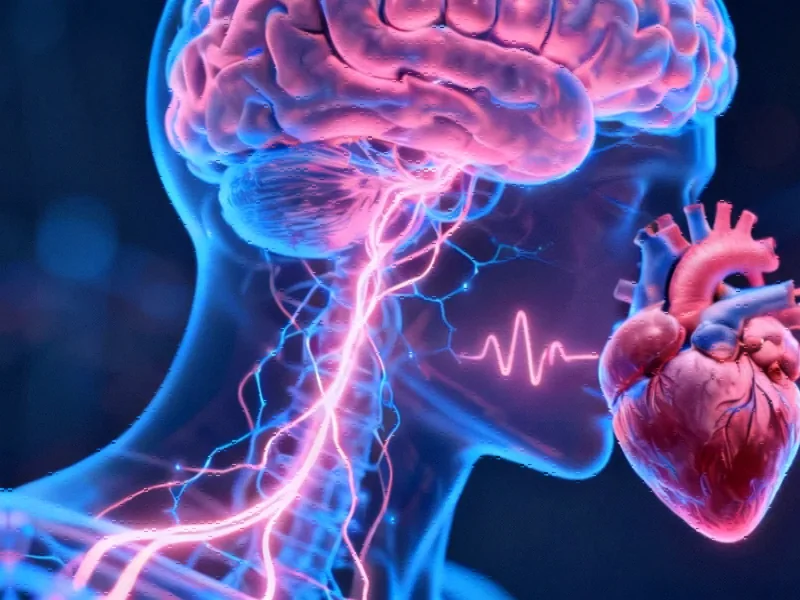Brain’s Oxytocin Pathway Found to Regulate Heart Rate Variability Through Respiratory Control
Scientists have identified a specific neuronal pathway where oxytocin amplifies respiratory heart rate variability. The findings reveal how brain circuits coordinate breathing and heart rhythm through specialized inhibitory neurons.
Oxytocin’s Role in Heart-Brain Connection Revealed
Researchers have uncovered a specific neural pathway through which the hormone oxytocin modulates the relationship between breathing and heart rate, according to a recent study published in Nature Neuroscience. The investigation reveals how oxytocin released from hypothalamic neurons acts on brainstem circuits to amplify respiratory heart rate variability (RespHRV), a key indicator of parasympathetic nervous system function and overall cardiovascular health.
